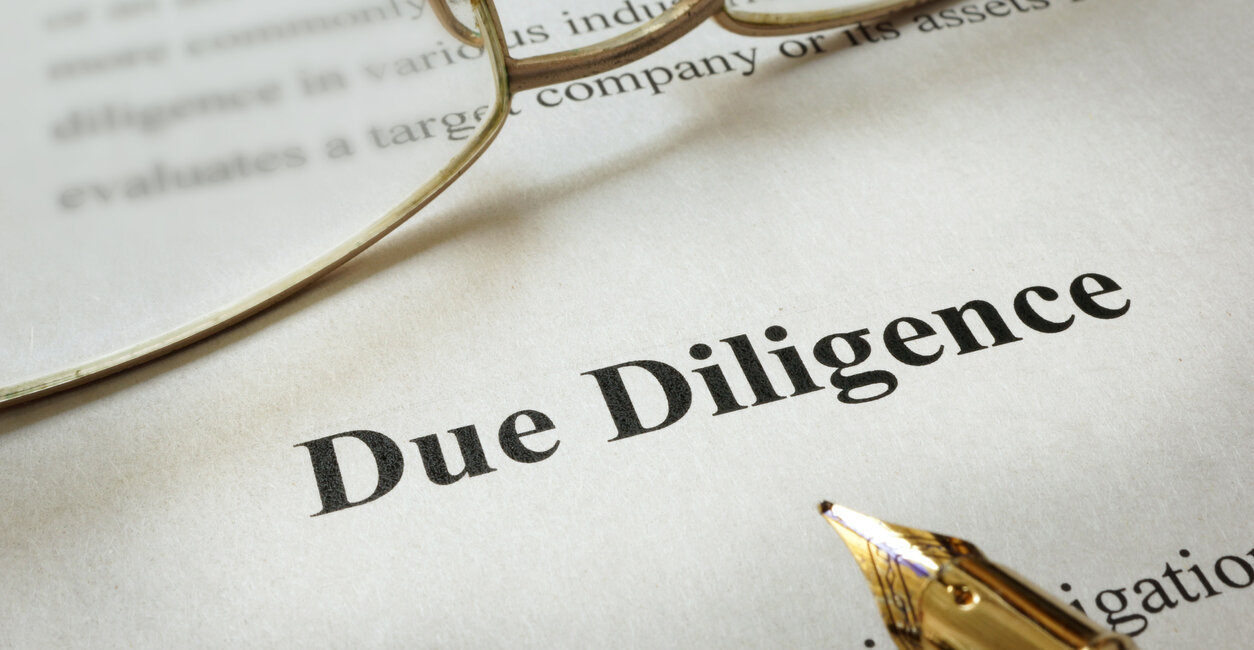06.10.2022

The sale of a company always proceeds in several phases. In phase two, the potential buyer often wants to perform due diligence. What does that mean exactly? And is this even in the interest of the seller?
Stating the purchase price is just the beginning
The sale of a company is complex and takes place in several phases. At the beginning, the prospective buyer is usually provided with relatively little information. In many cases, these are annual financial statements and a planning statement prepared by the seller.
Often, the seller summarizes the documents in an „information memorandum“ and gives an idea of the purchase price after initial discussions. However, there may also be a bidding process in which the interested parties state their idea of the purchase price.
Due diligence creates clarity
To validate this purchase price, the prospective buyer will want to analyze the company in detail in a second phase. This is the only way to identify and, if necessary, quantify any risks. This process is called „due diligence“.
Due diligence can take many forms. Essentially, it is based on the following objects of investigation:
Key questions asked during due diligence:
The facts found in this way are then discussed with the seller. If necessary, they lead to a reduction in the purchase price.
Also in the interest of the seller?
The buyer is highly interested in carrying out due diligence. However, due diligence is usually also in the interest of the seller.
Because in the context of a due diligence, disputed facts become concrete and lose their horror. The buyer is better informed after the due diligence. He can better assess the risks and subsequently also offer a higher price.
How the seller can prepare
Consistent, coordinated information is important throughout the transaction process. The business plan must be based on the same figures and premises as the financial statements. Other documents –such as details on inventories or property, plant and equipment, tax provisions, etc. – must also be consistent with the annual financial statements.
Certain information should not or may not be disclosed to the prospective buyer. Any document to be shown to the prospective buyer must be reviewed in advance. Personal data or other confidential information shall be blacked out. Privady and business secrets must be taken into account.
The documents prepared in this way are then placed in a physical or digital data room. Only selected persons are given access to the data. The vendor should ask for a confidentiality agreement to be signed.
Relationship between valuation and due diligence
Business valuation and due diligence are two different activities. However, they are intertwined. In valuation, the company value is determined by means of a method, e.g. the DCF method. This normally takes place in the run-up to the sales process.
Due diligence, on the other hand, takes place in phase two of the sales process. Its results can be used to validate the originally stated enterprise value. This can increase the price, but usually decreases it – in any case, it creates a basis for trustworthy negotiations on concrete facts.
Security in the transaction process
Conducting due diligence is common practice in corporate acquisitions and is in the interest of both buyer and seller.
If previously unknown risks are discovered by the prospective buyer during the due diligence process, this can have an impact on the purchase price. However, dealing with the risks and quantifying them can also provide certainty in the transaction process. Certain risks are better understood and lose their terror.
The seller should prepare the due diligence well and provide consistent documentation. Privacy and trade secrets should be taken into account.
You may also be interessted in: Business valuation